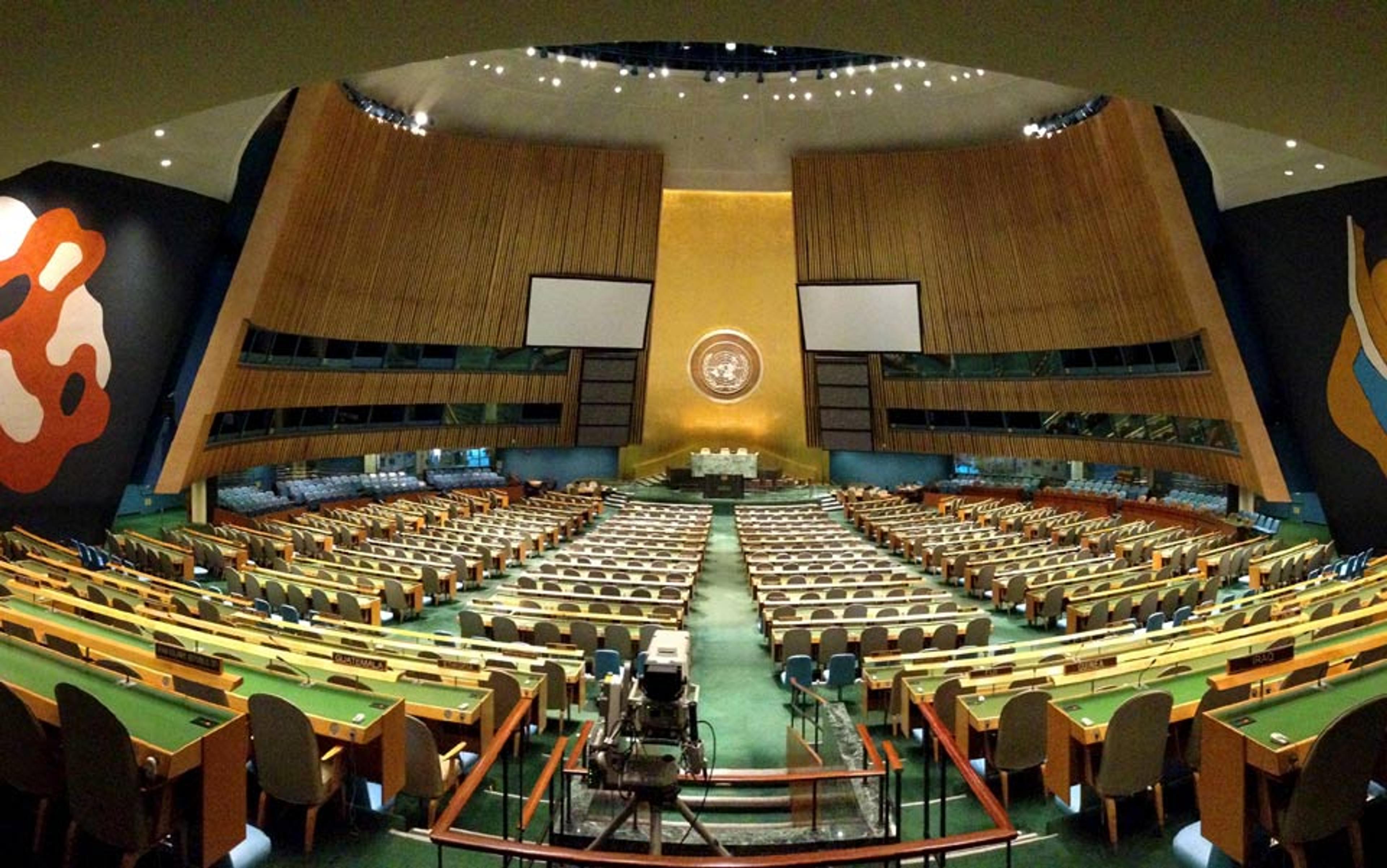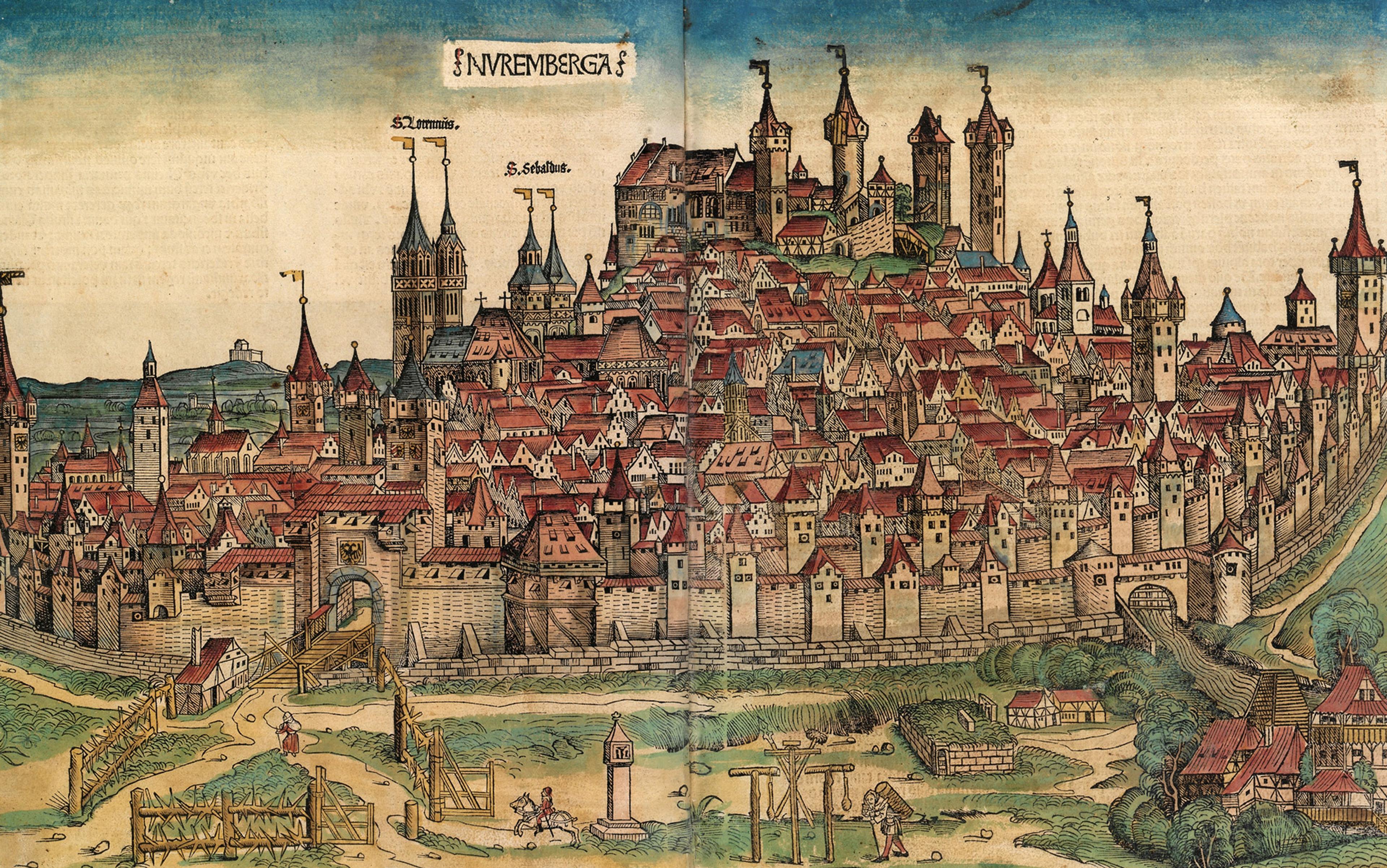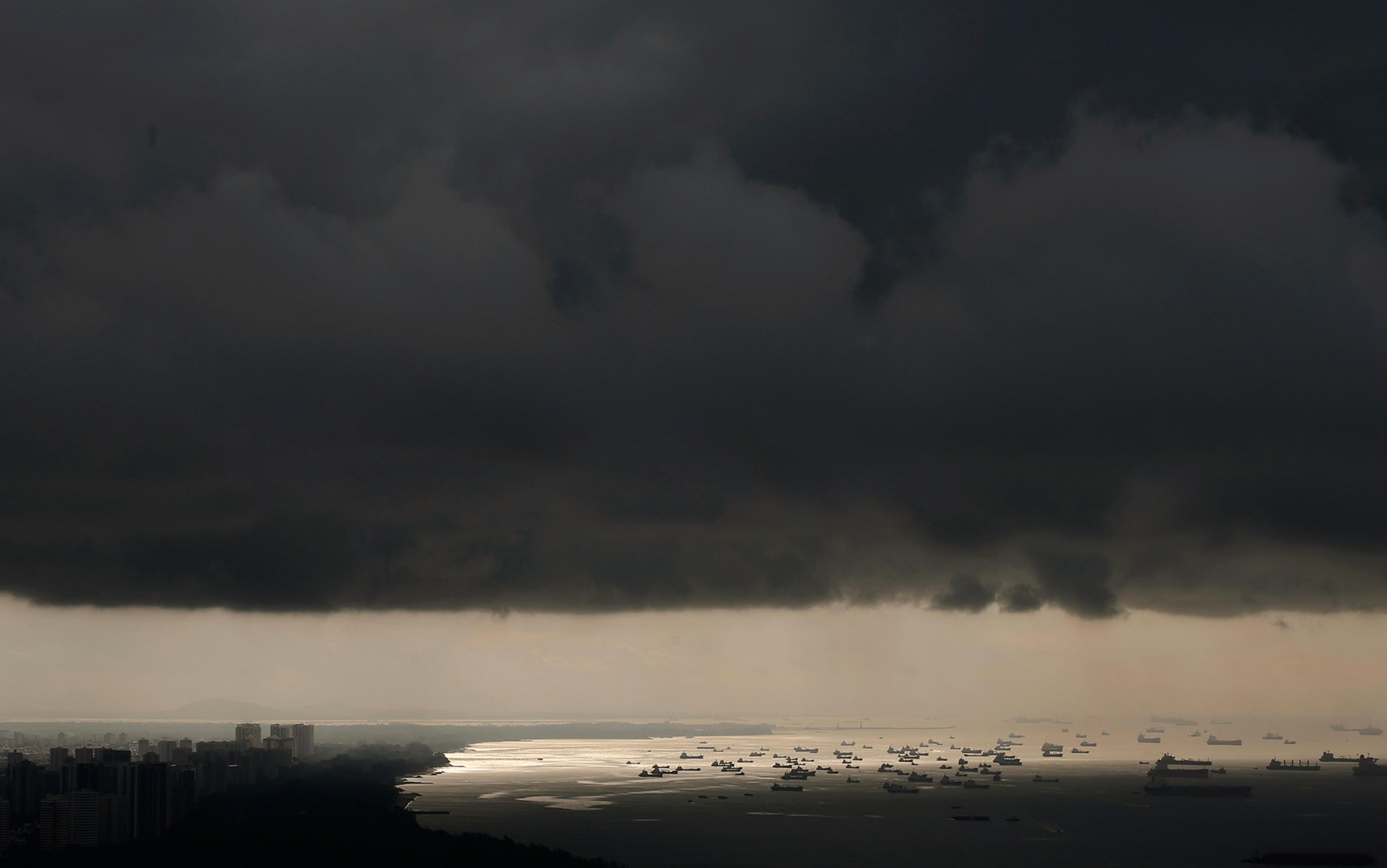Nigel Farage, the leader of the United Kingdom Independence Party (UKIP), recently tried a new tack in his campaign to free Britain from the ‘shackles’ of European Union membership. The EU, he said, should not be viewed as a mutually beneficial economic and political union of 28 countries, but ‘as a prototype for those who would have us be part of one world government’.
One can imagine nods of affirmation from Farage’s mostly far-right, avowedly Euroskeptic supporters, and weary head-shaking from those more in the political mainstream. But actually, he’s not so far off.
As a longtime student of the world government ideal, I have given the EU close scrutiny. I don’t necessarily see it as a prototype or ‘baby world government’, but as an immensely valuable living laboratory for studying the challenges and potential of deep integration between nation-states. Mine is just one of many voices in what has become a remarkable resurgence of academic thought on the world government ideal, including many who look to Europe for a partial model. Not since the world government ‘heyday’ of 1945-50 have we seen so many political scientists, economists, and philosophers giving serious attention to a global government.
In 1945, it was the virtually instantaneous atomic annihilation of two major Japanese cities by the United States that led academics, prominent politicians, and social activists to call for a strong world government. The choice was clear, Albert Einstein said, as part of his consistent advocacy on the issue: create one world, or face the prospect of having no world at all. Social movements advocating for global integration soon claimed membership in the hundreds of thousands and, by the end of the decade, both houses of the US Congress had held hearings on whether the United Nations should be transformed into a world government.
The heyday ended abruptly, however. With the onset of the Cold War and ensuing popular anti-communist hysteria, world government became linked to presumed Soviet designs for global domination. Few political figures then dared breathe a word about it, and through the 1990s it was pushed mostly to the fringes of serious academia.
The renaissance in thinking about world governments can be traced in part to the acceleration of economic globalisation. The 1999 World Trade Organisation protests in Seattle were a watershed moment. More than 50,000 activists converged from around the world, shutting down the city’s central business district and locking the WTO delegates out of their own opening ceremonies. Many in the streets saw the WTO as a shadow global economic government, setting the rules of international trade for most of the world’s countries, but with little direct input from their peoples.
This point has been made in academic circles, too, but it isn’t the only rationale for a single world government. A second camp argues, we’re not nearly as frightened as we should be of nuclear weapons. It is true that both Russia and the US have reduced their stockpiles of nuclear weapons dramatically, from highs of around 27,000 and 25,000 respectively. Today, the global grand total, counting weapons known to be held by the US, Russia, France, China, the UK, Israel, Pakistan, India and North Korea, is believed to be around 17,000, with 10,000 of those actually in ready stockpiles, and the rest slated for dismantlement. But watchdog groups such as Ploughshares Fund in the US say that the number is still far too large in relation to any practical purpose the weapons have.
Those offering the nuclear security case for world government paint a starker picture: unless some bold, near-term steps are taken towards global union, the remaining arsenal is sure to blow up in humanity’s face. Campbell Craig, professor in international politics at Aberystwyth University and one of the leading security world government voices, offers probably the most unflinching recent version of this argument. ‘In the long term,’ he writes in Glimmer of a New Leviathan (2003), ‘deterrence is bound to fail… When it fails, the ensuing war is likely to kill hundreds of millions of people, and possibly exterminate the human race.’
Many in this camp echo the logic of Thomas Hobbes, the 17th-century English philosopher who described life in the state of nature as ‘nasty, brutish and short’. Hobbes prescribed powerful government as the only means of avoiding a perpetual state of civil war, and many think this applies to the international realm as well, especially since nuclear weapons have raised the stakes of conflict. Others offer milder prescriptions from the same threat analysis. Particularly notable here is the Johns Hopkins political scientist Daniel Deudney, whose book Bounding Power (2007) was awarded the highly prestigious ‘Book of the Decade’ prize from the US-based International Studies Association. Deudney argues that we should fear not only global anarchy – a condition that gives states dangerous incentives to enhance their own security capabilities – but also strong hierarchies, including in the form of a powerful global government.
Deudney says we should avoid both of these extremes and create a limited ‘union of mutual restraint’ between sovereign states. The nuclear peace would be kept not by a Hobbesian sword hanging over all, but through a dispersal of state powers to actually use their most destructive weapons. In one such scenario, nuclear states would surrender their launch codes to a global authority. This body would then assess the case for any nuclear strikes and release the codes only if it approved.
Whether it’s used to advocate for a strong world government, or a milder federation of states, I’m not so sure the nuclear case is persuasive. Undoubtedly, authors, politicians and social activists in the 1940s were right to sound the alarm about the atomic threat, and to do all they could to try to put the nuclear genie back into the bottle. And today’s commentators must be right that the threat is still severe and probably underappreciated. But there has long been a ‘cure worse than the disease’ feel to nuclear arguments.
A hastily formed union might bring not global peace, but endless global insurgency and civil wars
In most accounts, the nuclear one-world would be rapidly constructed, given the urgency of the threat. It would also need to cover the entire globe, so that every country could be assured of its own safety. A hastily formed union might bring not global peace, but endless global insurgency and civil wars. You could imagine the emergence worldwide of political figures such as Britain’s Farage, demanding freedom from ‘foreign control’ for their own countries, and claiming sovereign rights of defence and armament against a rapidly imposed global Leviathan.
Most thinkers in the current nuclear camp are pessimistic that an enlightened self-interest will move us to take the necessary steps toward a world government. Deudney and Craig both suggest that it might take a limited nuclear war – some regional conflict such as India vs Pakistan – for us to wake up to our precariously balanced reality and move toward a global union. But even then, a second paradox arises, one that has long been lobbed at Hobbesian arguments: we are said to need a strong government before we can trust each other not to be nasty or brutish, but how can we create such a government without that level of trust already being in place?
In the global context, countries could not be assured of their own security until after a world government had eliminated the nuclear threat. Yet, it is hard to imagine any scenario – perhaps especially one after a regional nuclear war – where every nuclear-capable state would trust every other enough to simultaneously surrender all of its nuclear weapons capacity. This is why some have suggested that it might actually need some powerful state imposing its will on all others to save us from the nuclear threat, which brings us back to our earlier worries about too-quick integration triggering a global civil war.
And so, while it’s true that sovereign states armed with nuclear weapons pose serious threats, I’m not convinced that a global government is the solution to that problem in the near term. But what should we make of the case for global democracy? David Held, professor of politics at the University of Durham, is perhaps the most influential recent advocate of global democracy, though like most thinkers in this area, he does not willingly fly the world government flag. Held and his frequent collaborator, Daniele Archibugi, research director for the Italian National Research Council in Rome, joined forces in the glow of the New World Order-era at the end of the Cold War. They outlined a project of ‘cosmopolitan democracy’, which soon became the term of art for all broadly similar proposals seeking to push democracy above and beyond national boundaries.
Their arguments focus on the same concern voiced by the WTO protesters of 1999. Namely, thanks to globalisation and economic integration, people are increasingly affected by decisions in which they have no democratic input. For Held, this is a violation of a fundamental freedom. All persons should be permitted to have a say in the decisions that affect their lives and so, according to Held, global institutions that can make and enforce binding democratic decisions should be created.
Others have followed a similar logic in arguing for a less powerful global parliamentary assembly. Indeed, we have recently seen the emergence of the global social movement that resembles those of the 1940s heyday: the Campaign for a United Nations Parliamentary Assembly, which would create a directly elected advisory parliament meeting parallel to the UN General Assembly. More than 1,300 current and former parliamentarians have formally endorsed the project.
It might be more important to address issues of poverty, inequality and global justice than to try to ensure a democratic say above the state
My primary concern with ‘cosmopolitan democracy’ stems from its presumption that democratic participation will indeed make us free. Of course, few of us that live in democracies would trade participation rights for some form of rule by the benevolent and wise – and rightly so. Strictly speaking, however, in majority decision-making, only the freedom of the winners is enabled. Those on the losing side, especially if they belong to a persistent democratic minority, might see their liberty routinely restricted. This point has important implications for global institution-building, in that cosmopolitan democracy could be putting the cart before the horse. In the near term, it might be more important to address issues of poverty, inequality and global justice than to try to ensure a democratic say above the state.
To see this objection most vividly, imagine how a global democracy would confront an issue such as climate change, which might affect a minority dramatically, and the global democratic majority to a lesser extent. Imagine our representatives follow majority will, and vote to let low-lying island countries sink under the waves, rather than make the sacrifices needed to address the root causes. Democracy will have been done, but what about justice?
This concern is at the root of my position that changes to our global political system should be motivated by global justice, and not by a focus on a particular form of government. Of course, what needs changing will depend a great deal on what we deserve. If we deserve only to see our most basic needs met – minimal food, shelter, health care – then relatively few institutional changes might be needed. If, however, all persons deserve a richer set of life opportunities and the means to pursue them, deep institutional change will be required.
Many political theorists have recently argued for a higher global minimum, but my focus has been on the kinds of individual rights that should be reliably secured for all persons, and especially on the seeming inability of the sovereign states system to safeguard those rights. Our current international system leads to unjust outcomes because, in part, sovereign states are able to claim the right to be the ultimate judges in their own cases about moral obligations.
This is a line of argument that traces not to the Hobbesian sword, but to the 17th-century English liberal thinker John Locke. It wasn’t that life outside government would be nasty and brutish all the time, Locke argued. Social norms and agreements would exist as stabilising forces. The trouble is that individual actors would inevitably come into dispute about various things, and human nature being what it is, both would tend to think that they were in the right. This would lead to some unnecessary and potentially destructive conflicts, and so government is needed to pass fair judgments and back them up.
The logic can be extended to rights protections in a system of sovereign states. Countries claim the right to be their own final judges about their obligations to contribute to development, to support fair trade and investment rules, to address climate change, etc. There is no strongly empowered neutral judge able to set fair terms of co-operation and contribution, and this leads predictably to vast inequalities in rights protection and life chances for people in less-rich countries.
Closely related to this concern is the way that such a system turns the vice of selfishness into a virtue. It encourages us to view ourselves as members of discrete, self-contained moral communities. We are encouraged to assume strong duties of justice to others in that community, whether it is comprised of Nauru’s 9,500 souls or China’s 1.3 billion, but outsiders are said to be owed only charity that can be spared.
Many ‘statists’ who defend this moral arrangement point to the ways that co-citizens make sacrifices for one another, including paying taxes and obeying democratically imposed laws. Yet this does little to justify the boundary lines drawn around our national communities. Those lines put us in relations of co-citizenship and obligation in the first place, but they are often the product of war and other historical contingencies. The ‘is’ of the current system can’t necessarily tell us whether that ‘ought’ to be the system we have.
If we ought to have a system where the key rights of all persons can be reliably protected, then we very likely will need to pursue global integration. We’ll need, in short, to work toward creating a world government, but given the difficulties we’ve already canvassed, how might this actually be achieved?
Outside of the nuclear security camp, most accounts presume a global government must evolve over time. Some have argued this process is already in motion, by pointing to the tendency for governing units to shrink in number. Early on in human history, we lived in some 600,000 kingdoms, tribes and other units, but today that number is just shy of 200 sovereign states. That’s fascinating as far as it goes, but it doesn’t tell us whether the number will shrink further, much less to one. There are, however, other accounts that give us some idea how that could happen.
In the wake of the Seattle WTO protests, the Princeton economist Dani Rodrik argued that the world faces a trilemma, where three possible outcomes are possible, but only two can obtain at once. The points of this trilemma are state control of economic policy, full global economic integration, and democratic policy-making. Picture here the ‘Battle in Seattle’ scenario: states’ representatives want to negotiate deeper economic integration inside their hotel conference rooms, while outside unruly street protesters demand to give input. Rodrik speculated that state control would be the loser of the three. Politics eventually would be shifted upward to more democratic global institutions, giving the peoples of the world more of a say in how economic integration is shaped, and spelling the gradual end of closed-door, state-to-state negotiation as the primary means of global economic policy-making.
A second feasibility theory is offered by Alexander Wendt, professor of political science at Ohio State University, who maintains that the emergence of a world state is not only feasible but inevitable. To make his case, Wendt brings in a third figure from the Modern philosophy canon: not Hobbes or Locke, but the 19th-century German thinker Georg Wilhelm Friedrich Hegel. Hegel argued that nation-states evolve through struggles for recognition. Individuals and domestic social groups demand from one another the recognition of their own equal worth. As recognition is extended, they gradually come to identify with one another as equals in a common (national) identity, forming a cohesive whole.
Wendt sees nation states as individual ‘people’ locked into the same sort of struggle. He argues that we are in the early stages of a five-stage recognition-and-formation process that will take perhaps 200 years to reach its world state end. Instability in each stage will drive us to the next, though occasional backward movement is also possible.
The only stable system, Wendt argues, is a fully unified world state that has the monopoly on legitimate coercive power
The stages progress from a Hobbesian ‘warre of all against all’, where actors extend virtually no recognition to each other, to a ‘Lockean’ state of nature-type system, much like the current one, where a number of norms are observed but states are the ultimate judges in their own cases, including about going to war. Subsequent stages would see war-making powers and the instability they bring gradually eliminated as states come to extend recognition to one another through ever thicker sets of mutually observed rules and eventually binding global laws. The only stable system, Wendt argues, is a fully unified world state that has the monopoly on legitimate coercive power. In fact, anticipating Farage, he suggests it could look like a more strongly empowered EU.
A third approach, put forth by Robert Goodin, professor of government at the University of Essex, suggests we might already have much more world government than we realise. Goodin points out that the current global system looks very much like the pre-Constitution US did, when it was a union of states joined loosely by the Articles of Confederation. Then, as now, the centre (Philadelphia, or the United Nations) had to effectively beg the states for troops and resources, and tax revenues came mostly through indirect means such as customs duties. Then, as now, integration is pushed along by state actors creating or subscribing to collective institutions that help them achieve economic growth and security.
In my own view, the current global system looks less like the pre-1789 US than a present-day developing country, a pyramid with the relatively rich at the top and a broad base of people leading much more precarious lives. But whether the historical parallel fits or not, the functional argument put forth by Goodin and others makes a good deal of sense to me. Consider how policymakers have sought, especially in the past century, to develop regional organisations in Europe, Latin America, North America, Africa and elsewhere; not to mention international courts and ministry-like international welfare, security and economic organisations. Taken together, these shadow the structure and functions of the domestic state. Global policymakers might reject the world state ideal in their public statements, but pragmatic efforts at ‘world state building’ are well underway.
That said, my suspicion is that it will take a good bit longer than 200 years to reach something that would be broadly recognised as a global government. After all, it took more than 300 years, from the 1648 Treaty of Westphalia, for the world to be (almost) fully populated by sovereign states, as opposed to kingdoms and colonies. The EU remains the only deeply integrated regional entity, though economic integration projects are underway in virtually every region, and global governance institutions, while proliferating, remain only shallowly empowered.
Will it take five centuries to form a world government? A millennium? My usual answer is 800 years, though I must admit I haven’t fully worked out the progression. Part of me suspects that ‘never’ might be the right answer, but even if full world government is never realised, a rights-based approach to integration gives us reason to be optimistic. If the ultimate purpose of governing institutions is to promote rights protections, and higher-level institutions can be made to serve this purpose through social and political struggle, then the more world government that emerges, the better.






